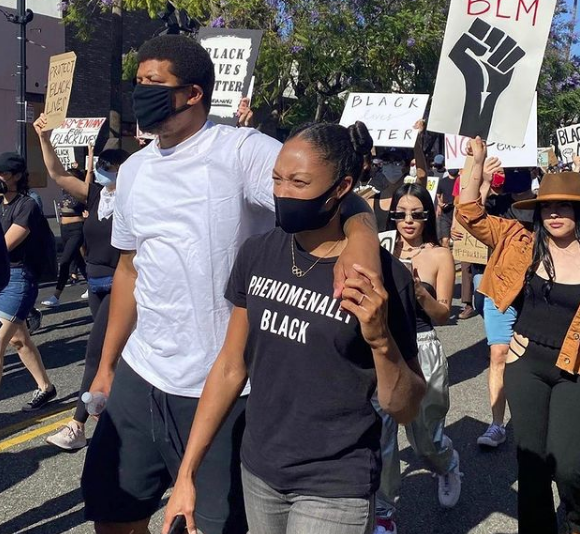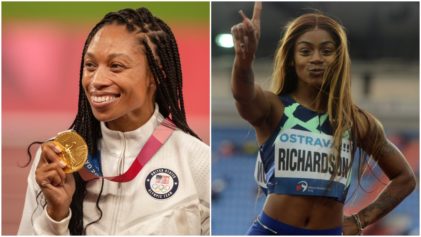Record-breaking sprinter Allyson Felix could be less than three months away from competing in her fifth and final Olympic Games.
True enough, building on her legacy as one of the most decorated American women’s track & field athletes is on her mind, but so is the continued fight for justice in the Black community. Felix has been outspoken about the significance of athletes with large platforms exercising their voice — it’s something she herself feels empowered to do.
“I just feel like it’s a very special time right now being an athlete and being able to use your voice,” said Felix to The Root.

The six-time Olympic gold medalist added the games have one of the largest audiences, making it that much greater to address ongoing acts of injustices impacting her community. The only would-be hurdle in using her voice is the fact that the Olympic Committee banned all forms of protest, including kneeling and wearing Black Lives Matter paraphernalia.
“I just know how important my community is to me,” said Felix who has every intention of using her voice in the days ahead of the games. “Here we are leading up to our biggest stage and I definitely want to continue to do that.”
Last summer Felix, 35, who is aiming at qualifying for a spot on the U.S. women’s 200 meters team in the Olympic Trials next month, opened up about her decision to join protesters following the death of George Floyd.
“I just felt compelled to be out there,” said Felix to the “TODAY” show last summer. “It completely broke my heart. And so, it’s just so important for me to use my voice.”
The Olympic Committee’s move to reaffirm its stance on protests is a direct response to athletes such as LeBron James and others who have been very vocal about using their massive platforms to address racial injustice. Instead, the IOC Athletes Committee wants the games to serve as neutral ground. The IOC’s opposition to political protest was dramatically demonstrated in the 1968 Summer Games in Mexico City, when U.S. 200 meters gold medalist Tommie Smith and bronze medalist John Carlos each raised a black-gloved fist in a Black power salute as they stood on the podium during the medals ceremony for their event. The Olympics Committee reacted by banning the two from the Olympic Village, and they were sent home immediately and kicked off the U.S. Olympics team.
“When an individual makes their grievances, however legitimate, more important than the feelings of their competitors and the competition itself, the unity and harmony as well as the celebration of sport and human accomplishment are diminished,” explained the committee of Rule 50, which lays out the ban on protests.
On social countless people have expressed their disdain for the banning of the Black Lives Matter movement at the Games, while others agree with the decision.
“Athletes should just boycott….this is violation of free speech…they are not employees of the Olympics”
“Sports are intended to unite not to bring political issues that could jeopardize the goal of sports”


